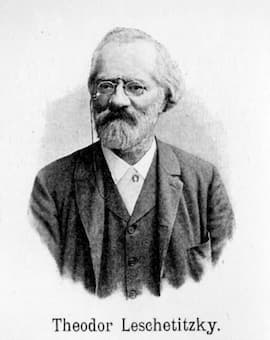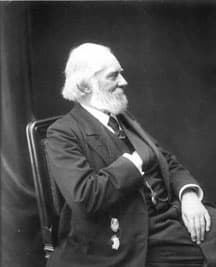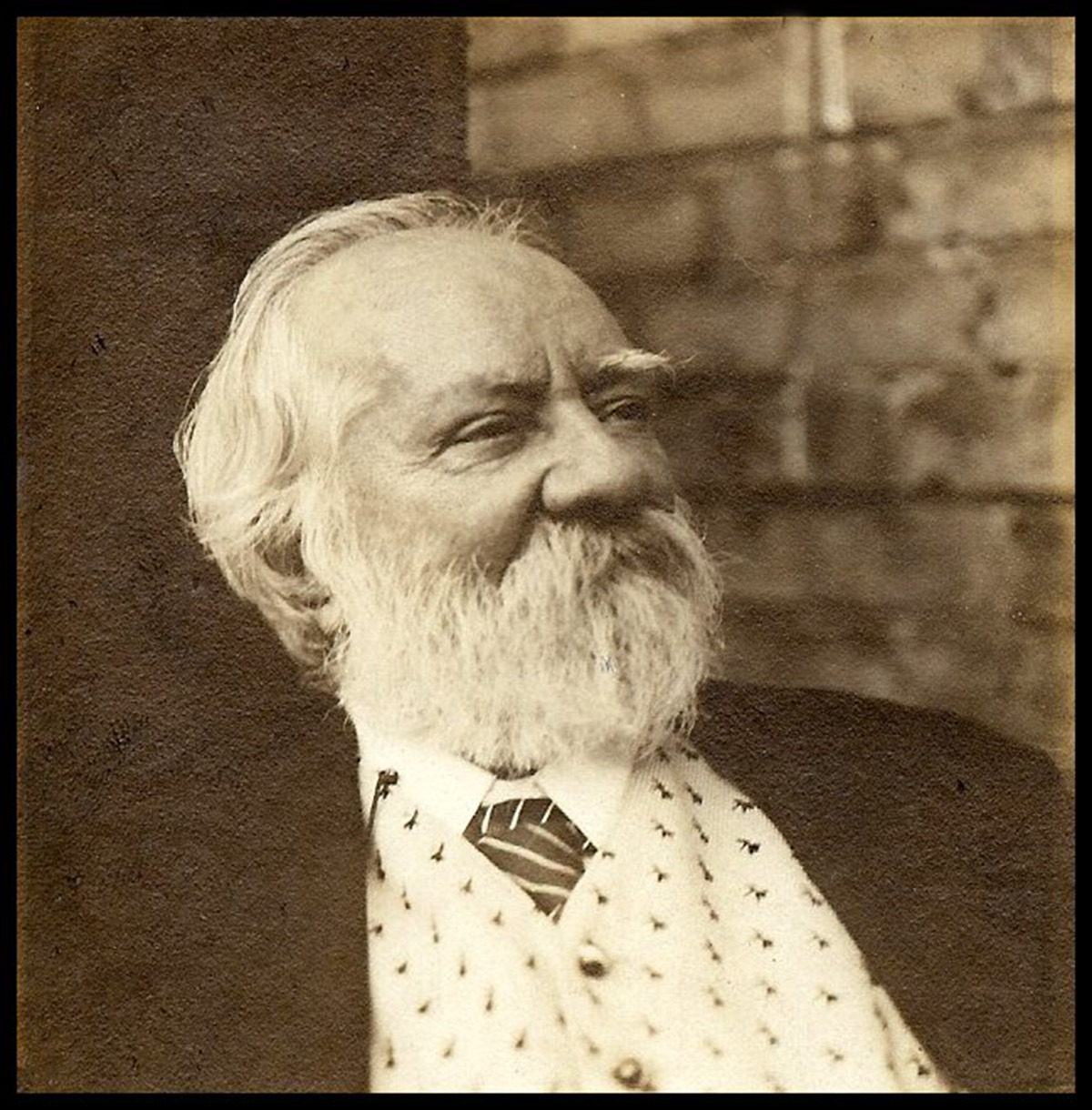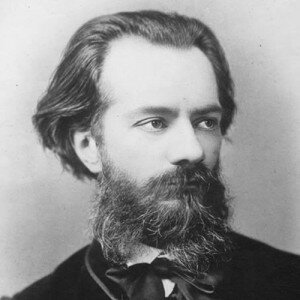
Theodor Leschetizky
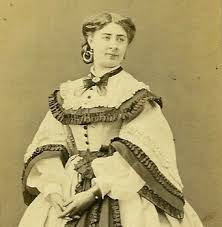
Anne de Friedebourg
Anne de Friedebourg had actually been proposed to by the pianist Anton Rubinstein, but she had agreed to await his return from a concert tour before accepting his offer. Rubinstein’s concert tour apparently took a long time, as “I set myself the fundamental aim of trying to secure a more brilliant position than I could have offered to Friedebourg previously,” Rubinstein writes. In the event, de Friedebourg got tired of waiting around and agreed to marry Leschetizky. Rubinstein was not particularly upset, as he writes, “This is, of course, the best thing she could have done. I congratulate her with all my heart and I am grateful that she has thereby lightened my load, since henceforth I shall have to work for myself, which is easier than working for two.” But it wasn’t all that long after his marriage to de Friedebourg that Leschetizky started lessons with one of his most brilliant students.
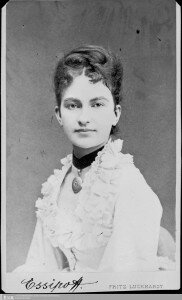
Anna Yesipova
Theodor Leschetizky: Contes de Jeunesse, Op. 46
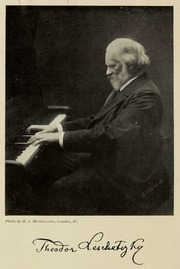 Anna had an extraordinary gift for music, and after having heard a concert at age 7, she went home and reproduced the entire program from memory. She also had a beautiful voice, and her father was trying to nudge her into a singing career. As a result, she only started serious piano lessons at the St. Petersburg Conservatory at age 13. It was Leschetizky who first noticed Anna’s talent, and after hearing her play at a public exam he said, “This little one is possessed, she will be a great artist if she tames her nature.” After her debut in 1871—when Tchaikovsky praised Yesipova’s impeccable technique and artistic maturity—Anna played an astonishing number of concerts in Russia and Western Europe. And in 1876 she received an invitation to perform in the United States, playing 105 concerts in 6 months. She played 37 concerts in New York alone, and given her film star looks, she quickly became a celebrity. The famed writer George Bernard Shaw wrote after hearing one of her concerts that “her cold disdain for difficulties, the incredible fluency of her fingers, her graceful and haste-free manner of playing, devoid of sentimentality—all that commanded admiration.” And as you might have guessed, in 1880 she agreed to become the second wife of Theodore Leschetizky.
Anna had an extraordinary gift for music, and after having heard a concert at age 7, she went home and reproduced the entire program from memory. She also had a beautiful voice, and her father was trying to nudge her into a singing career. As a result, she only started serious piano lessons at the St. Petersburg Conservatory at age 13. It was Leschetizky who first noticed Anna’s talent, and after hearing her play at a public exam he said, “This little one is possessed, she will be a great artist if she tames her nature.” After her debut in 1871—when Tchaikovsky praised Yesipova’s impeccable technique and artistic maturity—Anna played an astonishing number of concerts in Russia and Western Europe. And in 1876 she received an invitation to perform in the United States, playing 105 concerts in 6 months. She played 37 concerts in New York alone, and given her film star looks, she quickly became a celebrity. The famed writer George Bernard Shaw wrote after hearing one of her concerts that “her cold disdain for difficulties, the incredible fluency of her fingers, her graceful and haste-free manner of playing, devoid of sentimentality—all that commanded admiration.” And as you might have guessed, in 1880 she agreed to become the second wife of Theodore Leschetizky. The couple had two children, but married life was not for the faint hearted. Both parties were incredibly strong willed, and Yesipova was clearly not content with merely being Leschetizky’s piano assistant. Marriage, it was said, turned Anna from a spontaneous and headstrong being into a very serious and self-preserving person.
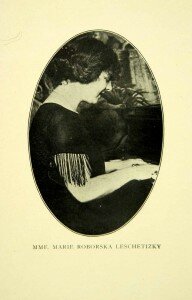
Marie Roborska
Theodor Leschetizky: 3 Pieces, Op. 48

